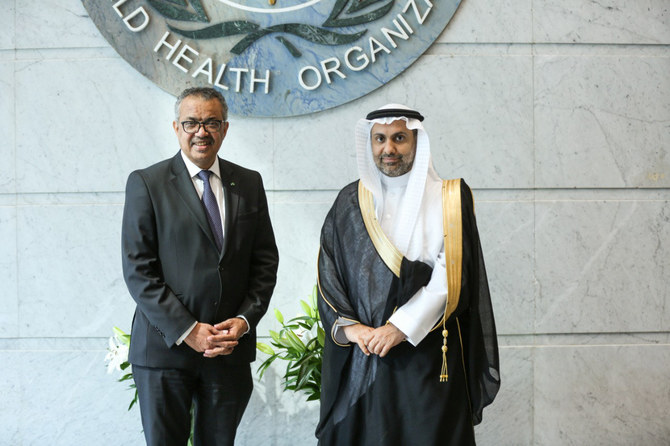Introduction: Defining the Role of Minister of Health
The role of the minister of fitness is one which contains giant obligation and have an effect on. At the helm of a nation’s healthcare machine, this person plays a critical element in shaping regulations that have an effect on thousands and thousands. From ensuring access to fine care to managing public fitness crises, the minister’s selections resonate a ways past their office partitions. As we navigate through evolving global health demanding situations, know-how this pivotal function turns into important for grasping how countrywide healthcare structures feature and adapt over time. Let’s delve into what it clearly manner to be a minister of health, exploring its records, obligations, and impact on our collective nicely-being.
History and Evolution of the Role
The role of Minister of Health has advanced extensively considering that its inception. Initially, it changed into mainly targeted on addressing infectious illnesses and dealing with public fitness crises. In many countries, the placement emerged in reaction to epidemics that highlighted the need for centralized health governance.
As societies superior, so did the duties related to this position. The scope improved to include intellectual fitness, chronic sickness control, and preventive care. Ministers began advocating for complete healthcare reforms.
In recent many years, globalization brought new demanding situations along with pandemics and healthcare inequities. This prompted a shift in the direction of coverage-making that encompasses not handiest country wide however additionally international collaboration in fitness topics.
Today’s Ministers need to navigate complex structures whilst enforcing innovative solutions tailored to their united states’s unique needs. They at the moment are key players in putting lengthy-time period healthcare strategies aimed at improving population well-being across diverse groups.
Key Responsibilities and Duties of a Minister of Health
The Minister of Health holds a pivotal function in shaping the nation’s healthcare panorama. One number one responsibility is to increase and implement health rules that ensure equitable get entry to to medical offerings for all citizens.
They oversee national fitness applications, making vital choices on investment and resource allocation. This consists of coping with budgets whilst striving for improvements in public health outcomes.
Communication is crucial. The minister have to have interaction with stakeholders consisting of healthcare specialists, policymakers, and the public. Their potential to advocate for necessary changes can result in impactful reforms.
Additionally, they’re tasked with monitoring ailment outbreaks and main emergency responses in the course of public fitness crises. Through powerful management, they goal to enhance basic community well being while addressing pressing issues including intellectual health and continual sicknesses.
Advocating for research initiatives also falls within their duties which supports innovation in treatment options and preventive measures across the nation’s healthcare system.
Influence on National Healthcare Policy
The minister of health plays a pivotal role in shaping countrywide healthcare policy. This function acts as a bridge between the government, healthcare professionals, and the general public.
Through strategic making plans and law, ministers can deal with urgent fitness troubles. They suggest for necessary reforms that enhance get right of entry to to care and enhance high-quality standards across the system.
By taking part with various stakeholders—including hospitals, coverage groups, and non-earnings corporations—they accumulate insights that tell rules. Their selections regularly reflect present day fitness tendencies and demanding situations faced with the aid of residents.
Moreover, in the course of crises like pandemics or natural screw ups, their management becomes even more critical. The minister ought to rapidly enforce measures to defend public fitness at the same time as balancing financial concerns.
In essence, their influence extends beyond mere administration; it impacts every citizen’s well-being directly through effective policy-making.
Case Studies: Successful Ministers of Health and their Impact on Healthcare Systems
Several ministers of fitness have left a substantial mark on their international locations’ healthcare systems. One first-rate example is Margaret Chan, who served because the Director-General of the WHO. Her leadership for the duration of international fitness crises highlighted the importance of preparedness and reaction techniques.
In Brazil, Alexandre Padilha converted get admission to to drug treatments through progressive guidelines that elevated public healthcare coverage. Under his tenure, popular get admission to have become more than simply an excellent; it changed into implemented with tangible consequences.
Another impactful leader was Dr. Tedros Adhanom Ghebreyesus in Ethiopia. His efforts focused on community-based health tasks and maternal care improvements which extensively decreased child mortality rates.
These case studies demonstrate how a minister of health can drive coverage modifications that resonate for the duration of society, impacting not most effective on the spot healthcare offerings but also lengthy-time period population fitness outcomes.
Challenges Faced by Ministers of Health
Ministers of health navigate a complex landscape. Political pressures, public expectations, and limited resources often collide. They must balance competing interests while ensuring quality care for all citizens.
Public health crises pose significant challenges. From pandemics to natural disasters, unexpected events demand swift action and clear communication. Ministers face the daunting task of coordinating responses across various sectors.
Budget constraints further complicate decision-making processes. Allocating funds effectively requires strategic thinking and negotiation skills. All stakeholders need consideration, from healthcare providers to patients.
Additionally, ministers often contend with legislative hurdles. Implementing new policies involves navigating bureaucratic red tape that can slow down progress.
Societal inequalities in health access remain a critical issue. Addressing these disparities is essential but challenging in resource-strapped environments where equity may conflict with efficiency.
Future Outlook: Potential Changes and Innovations in the Role
As the landscape of healthcare continues to evolve, the role of the minister of health is poised for transformation. Innovations in technology are shaping how healthcare services are delivered and managed. Telemedicine, artificial intelligence, and data analytics are becoming integral tools.
Ministers will need to embrace these advancements to streamline operations and improve patient outcomes. Adapting policies that support digital health initiatives could redefine accessibility for millions.
Collaboration with other sectors will be crucial as well. A more integrated approach involving education, technology, and public policy can enhance overall community health.
The rise of global challenges like pandemics demands a proactive stance from ministers. By prioritizing public health infrastructure, they can better prepare nations for unforeseen crises.
Furthermore, increased focus on mental health awareness reflects shifting societal values. Ministers must champion policies that ensure comprehensive care across all dimensions of wellness.
Conclusion
The role of the minister of health is vital in shaping the landscape of national healthcare. With a rich history and an evolving set of responsibilities, these leaders have a profound impact on public health initiatives and policies. They navigate complex challenges while striving to ensure that citizens receive quality care.
Successful ministers have demonstrated that focused leadership can lead to significant improvements in healthcare systems. Their ability to influence policy and implement innovative solutions sets a precedent for future health leaders.
As we look ahead, the potential for changes within this role is expansive. Adapting to new technologies and addressing emerging health issues will be crucial as societies continue to evolve. The commitment shown by those in this position can truly transform national healthcare, making it more responsive and effective for all.
The path forward involves collaboration, creativity, and unwavering dedication from ministers of health everywhere.




